Developing a Team
- social psychology
Week 1
Social psychology overview
- how thoughts, feeling, behavior is formed and influenced within a social context
- we are social beings first and are employees second
4 core insights from Social Sociology important for Change Processes
- CHANGE IN ORGANIZATIONS IS A SOCIAL PROCESS
- SOCIAL PSYCHOLOGY IS NECESSARY TO UNDERSTAND PEOPLE IN CHANGE PROCESSES
- SOCIAL PSYCHOLOGY DEMONSTRATES THAT THE MEANING IS KEY DURING CHANGE
- SOCIAL PSYCHOLOGY MAKES CHANGE MANAGEMENT DIGESTIBLE TO PEOPLE AND ALLOWS FOR INDIVIDUAL REFLECTION ON THEIR ACTIONS IN GROUPS AND organization on their terms
Two important aspects
- people are not objects
- understand the context of an individuals behavior
Belonging and understanding
📖 Social Beings - Susan T.Fiske
Core social motives (Fundamental psychological processes):
- Understanding - the need for a shared meaning
- create shared understanding
- Belonging - need to create and maintain social connections, this shapes how people are invested in the future of the company
- Controlling
- Trusting
- Self-enhancing
Actively monitor how these 5 needs are satisfied during a change
Tools
- what is your core message to the team
- 📖 the culture code
- You are part of this team. We have high standards here. I believe you can achieve those standards.
- solving difficult challenges together
- seek opportunities to ask for input
- What am I missing?
- How would you solve it?
- Listen and reflect
- create opportunities for connections (water-cooler, community events)
- hold all team non-work related events
- have dinner together via Zoom
- bring in some though provoking topics
- facilitate team missing statement workshops
- sense of contribution
- all have to agree to the teams mission
Controlling, Trusting,Self-enhancing
- controlling - need for a perceived dependency between behavior and outcome
- explain what is expected and how it is rewarded
- trusting - willingness to be vulnerable and to see others as kind and good
- [[The SPEED of Trust]]
- established through employees interest, strategic competence, reliability, openness and honesty
- self-enhancing - need for maintaining and improving self-esteem
- build skills, competencies
Tools
- mentoring conversations
- Use GROW model GOAL-REALITY-OPTIONS-WAY FORWARD
- Goal defines what we want.
- Reality means perceived circumstances we’re operating in. Reality means received circumstances we are operating in.
- What factors shape reality for you?
- How would you move from this reality to the goal?
- Options explain how we might move from the reality to our goal.
- Way Forward outlines actions we see as worthy of our time and an action plan.
- ask open ended questions
- trust building through lunch and learns (brown bag sessions)
- have a guiding question
- connections, sense of belonging, shared problem solving
- avoid feedback sandwhich
Week 2
Team working agreement
- common understanding
- living document
- consists of
- tool - describes how the team will work together
- operating norms - ceremonies and team commits to cadence, time
- resolving disagreement - escalation path
- feeling safe - communication channels, feel safe to open any topic, rules of engagement for discussing topics
- encouraging participation - process of every voice being heard
Include in retrospective.
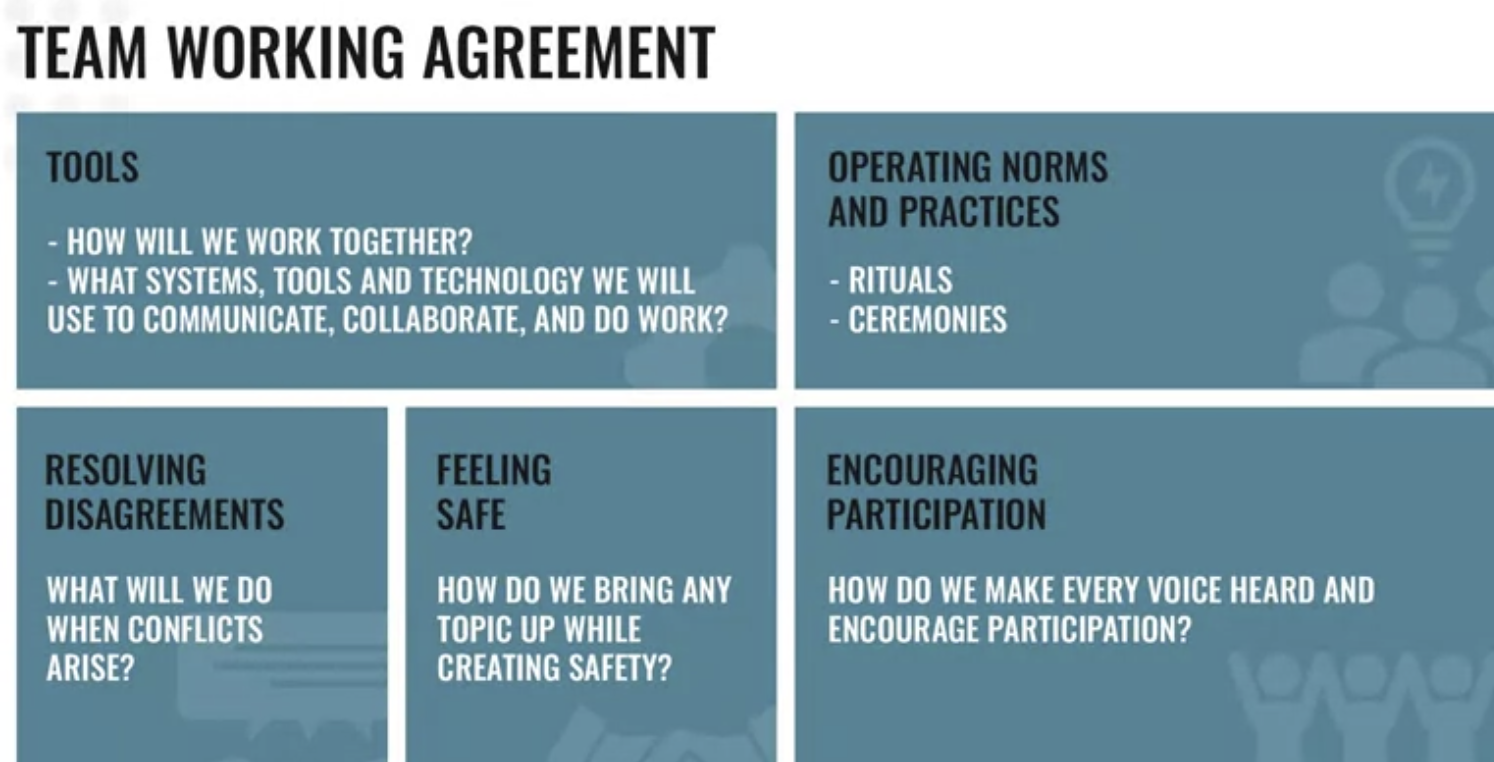
Empathy maps
- Empathy is the capacity to put yourself in another person’s shoes and understand them from their point of view.
- to design collaboration process
- understand what each person does, what motivates each person, and what emotions members may be experiencing as they do their work
- uncover feelings
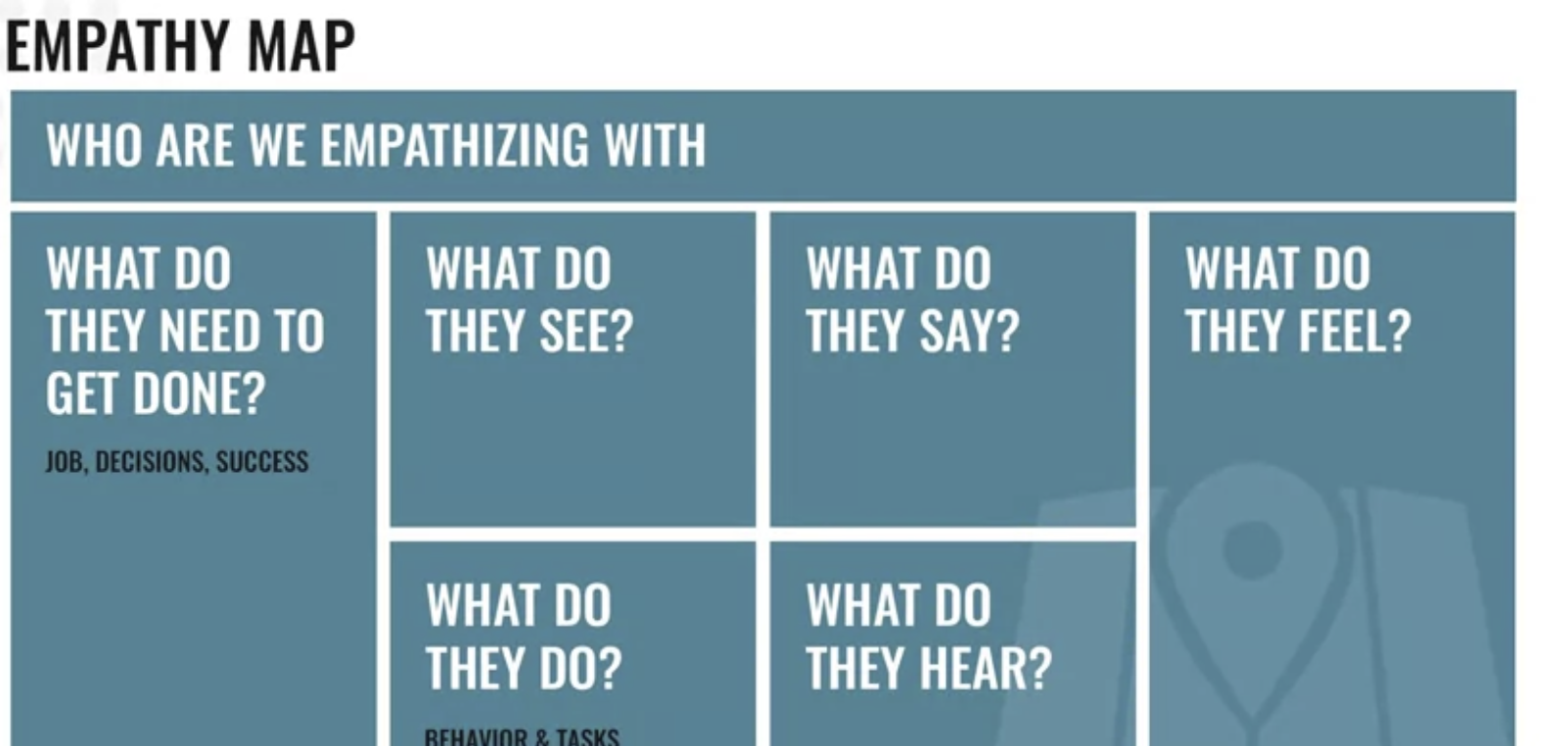
- put yourself in someone’s else shoes
- sneak peak into others motivations and feelings
Scrum
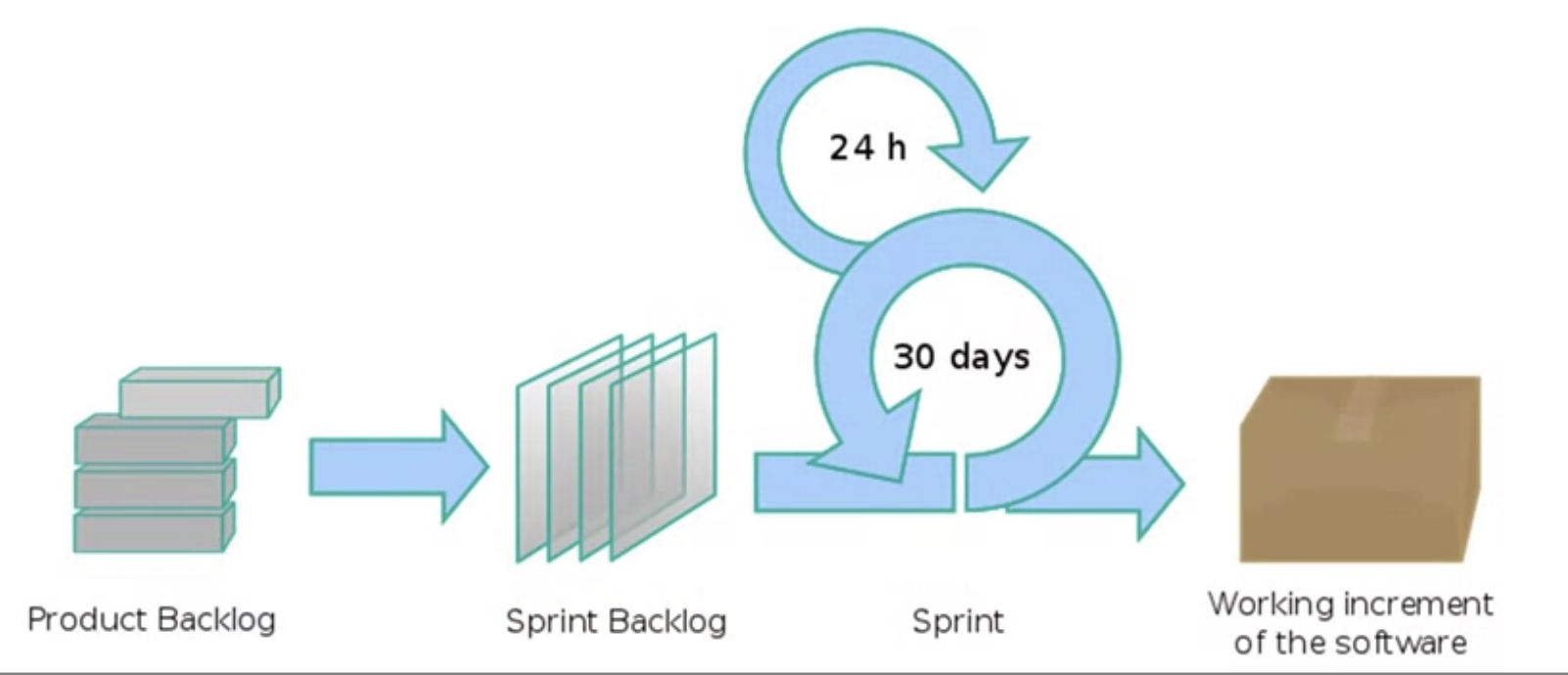
Week 3 - Scrum
- based on change and a working with a change resilient mindset
- stronger relationship within team and with customer
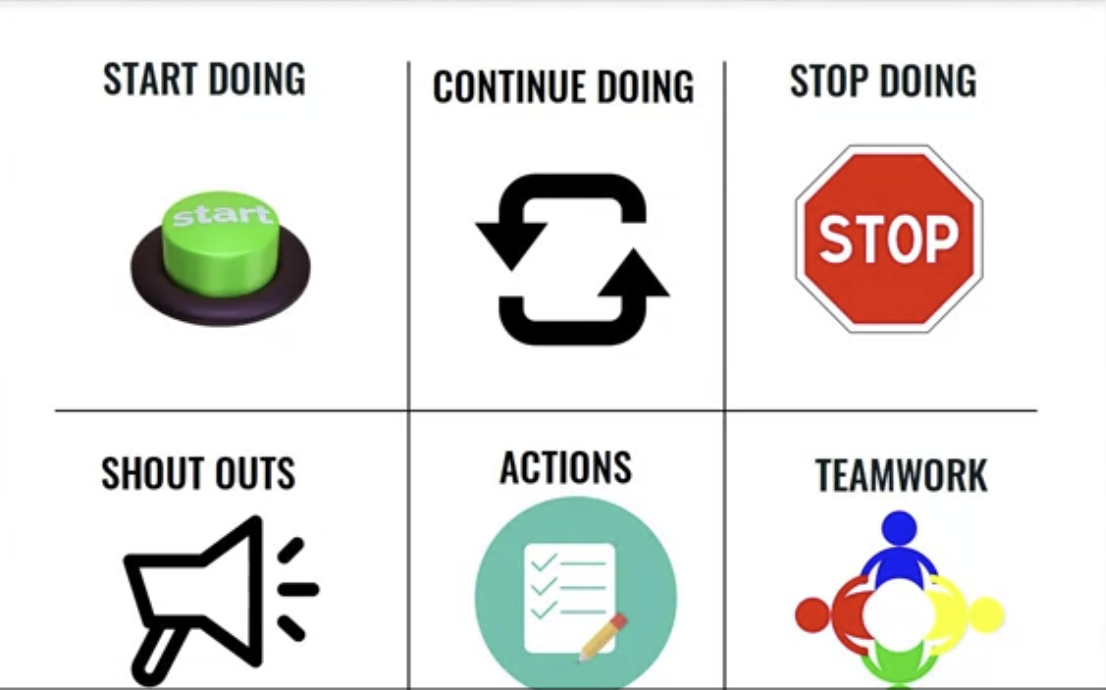
Week 4 - Servant leadership
- 📖 Robert Greenleaf - On Becoming a Servant Leader
- Hesse: A Journey to the East
- listening, empathy, stewardship, and mentorship skills
- FORESIGHT,STEWARDSHIP,MENTORSHIP, TEAM BUILDING, PERSUASION, CONCEPTUALIZATION, LISTENING EMPATHY,HEALING AWARENESS
- mindset and philosophy
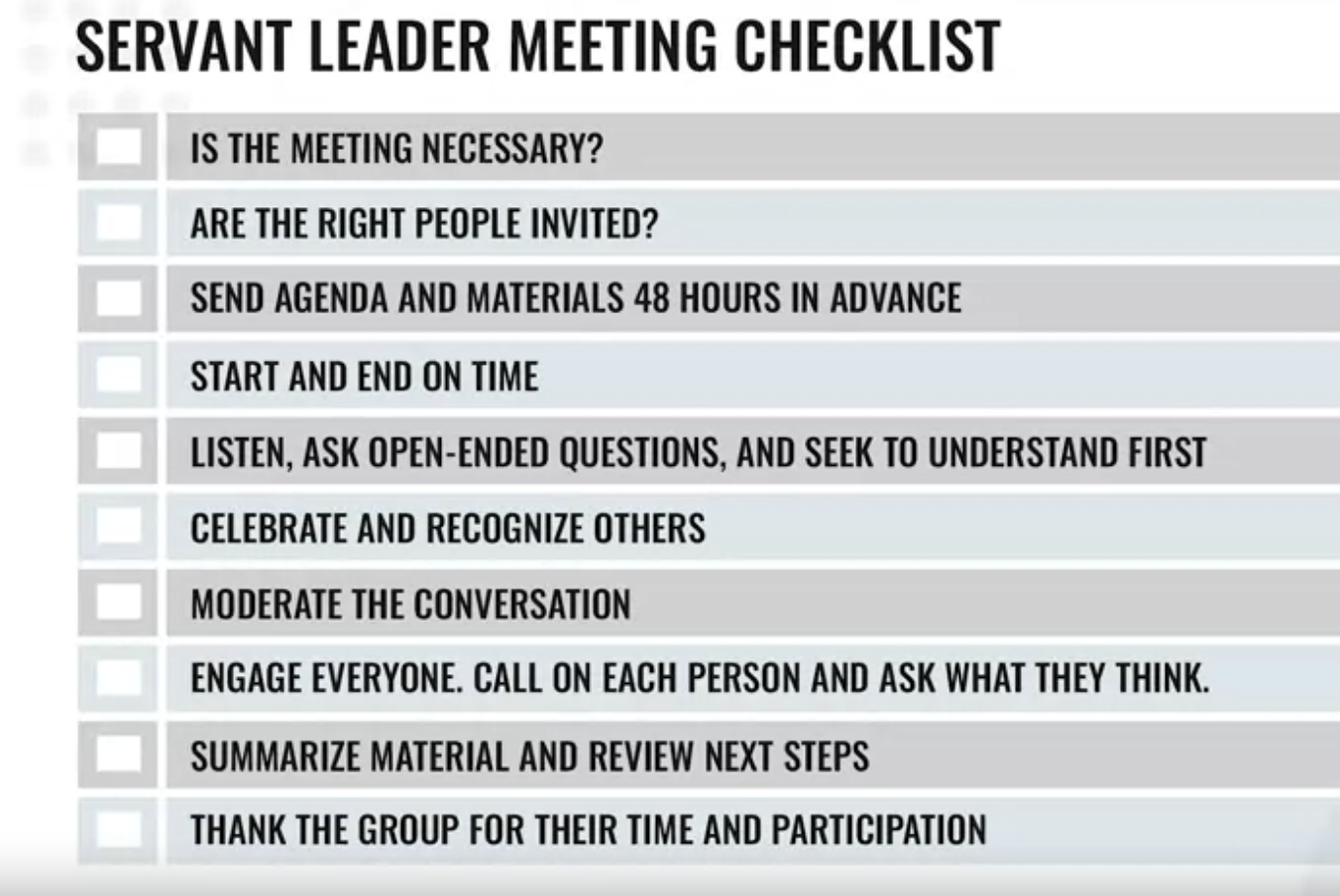
Build Shared understanding - Interview
- set context
- ask focussed questions
- ask filter questions (probing questions)
- exit
- debrief
Derive facts, emotions, quotes and conclusions
Facilitation
- Art of unlocking intelligence, insights, and creativity in people
- understand individual and group psychology
Online
- house-keeping
- ask for video on
- ask for focus
- embed short breaks
- limit to total 6 hours (seems to be too much already)
- embed physical activity
- keep it fun - plan for kids
- ensure collaboration platform is clear for everyone
Live Facilitation
- break barriers - Fishbowl
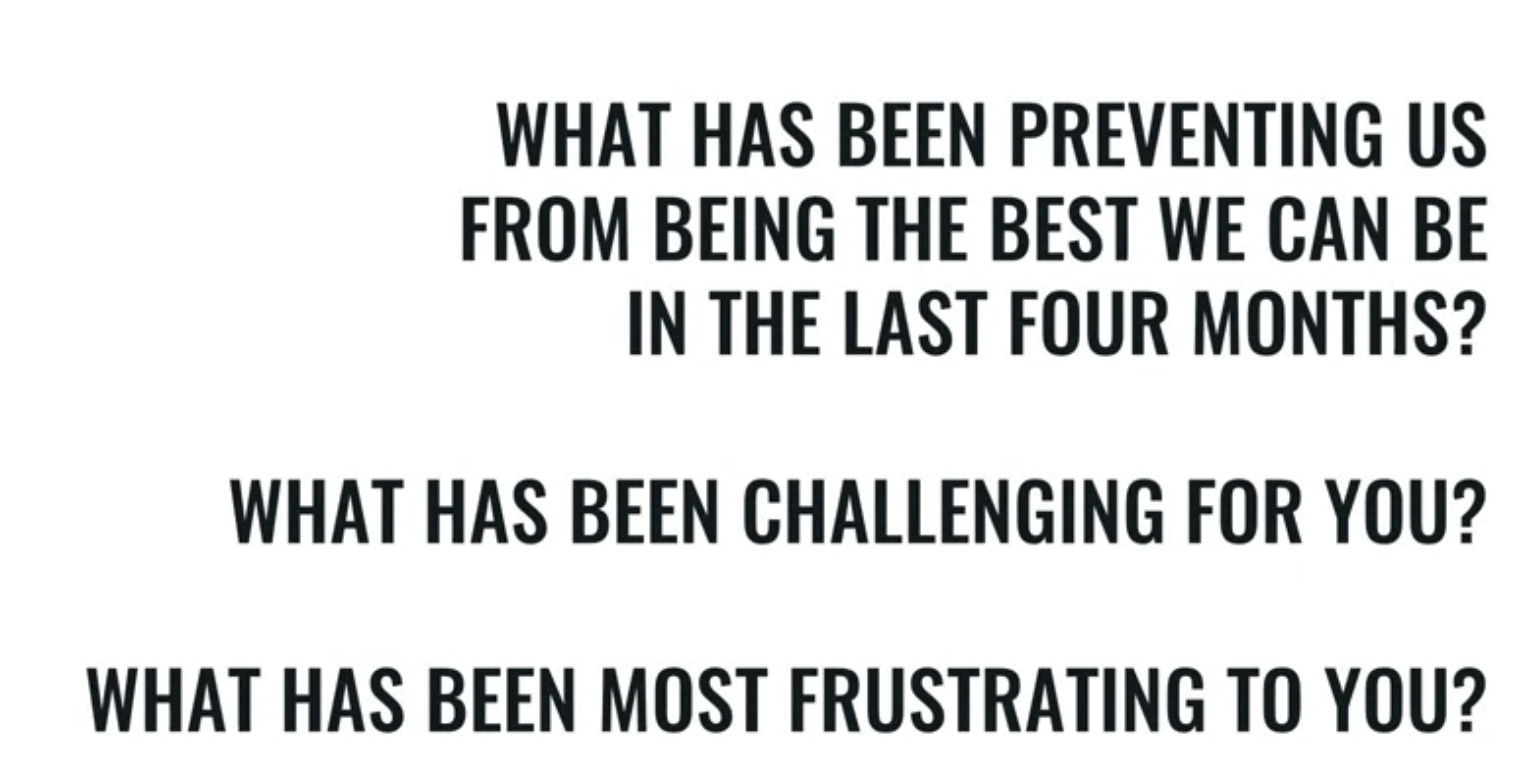 Throw ideals in a bowl and draw an item to discuss,
Throw ideals in a bowl and draw an item to discuss,
- play skits - sketches for a topic
- enter the center - inner circle and outer circle
Principles of Sustainable Innovation
- ask Why + 5 times
- growing ideas
- piloting ideas
- TEAM US
- actionism
- sell your ideas
Foster divergent thinking - Convergent thinking is based in logic and practicality, while divergent thinking is based in creativity and flexibility
- Creativity comes in waves and is different for every person
- ride that waves when it comes
- practice: take it to the extremes (serve just 1; serve 100000)
- practice: force connections - what is true about …my topic… that is also true to this ..reference object…
- and reverse – what is not true about object a but is true for my topic
- use all out sense - 22 senses!!
- time, smell,…
- choose what to leave out
Brainstorming techniques
- Flowers vs. Wheat … take time to grow ideas a little longer to know what the flower actually is
- SUN vs RAIN
- Sun stands for suspend (2 minutes timeout), understand, and nurture (and ..). Rain stands for react, assume, and insist
- work with an outside facilitator
- respect is a right
- vote with your feed
- voices are like spices
- take a break - to allow own creative waves
- review all ideas a week later
- consolidate the ideas
- explore on 3-5 ideas - build-break-build again
- now - fall in love with the idea
- get momentum - create the smallest win .. that leads to bigger wins
- give ideas a try
- pivot and iterate quickly
About innovation
- Flex
- bend the rules
- Fuse
- combine to ideas into a new one
- Fracture
- break a concept to several smaller ideas
Certificate
[[Coursera LUY7E7V7TL7U.pdf]]
Linking
Notes mentioning this note
Agile organisation
<!DOCTYPE html PUBLIC “-//W3C//DTD HTML 4.0 Transitional//EN” “http://www.w3.org/TR/REC-html40/loose.dtd”>
Agile Organisation - Week 1